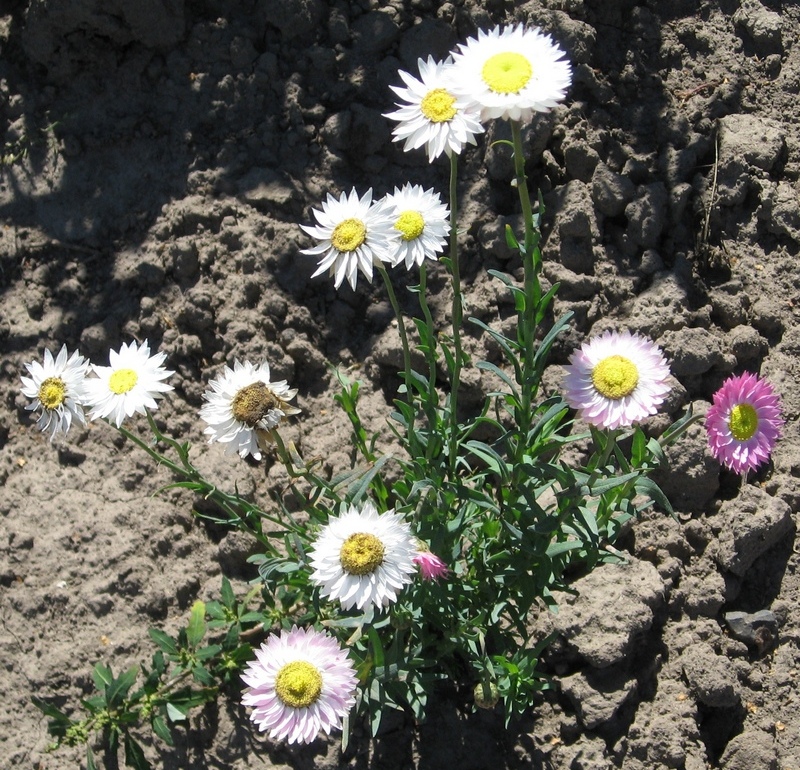
Rhodanthe chlorocephala ssp. rosea Изображение особи Плантариум
Rhodanthe chlorocephala ssp. rosea (the rosy everlasting, formerly Helipterum roseum) - deep pink flowers with a yellow or black centre. Height: 50cm. Rhodanthe manglesii (Mangle's everlasting or silver bells, formerly Helipterum manglesii) - pink or white nodding bell-like flowers. The species was collected in Western Australia last.
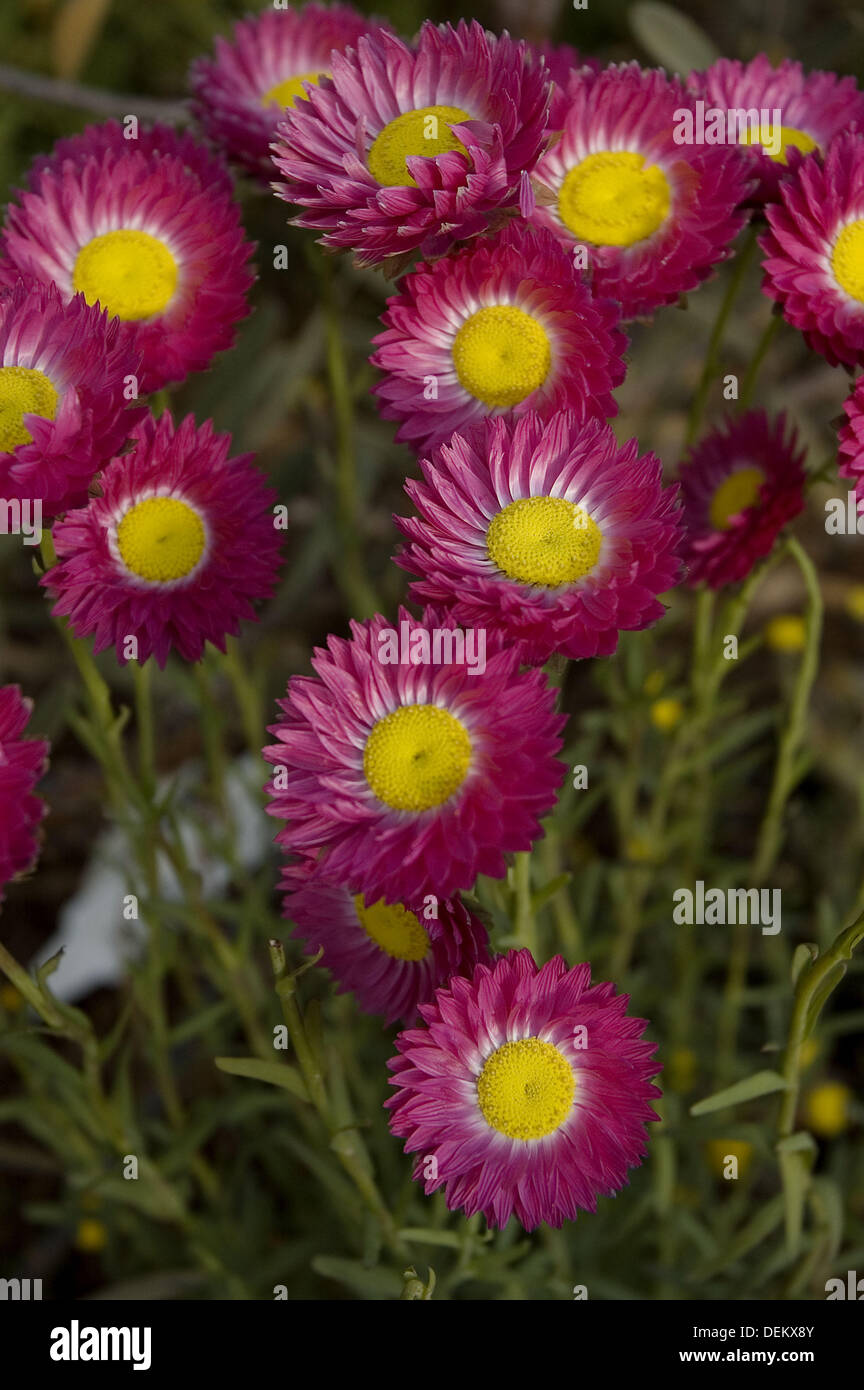
Everlasting Daisies (Rhodanthe Chlorocephala ssp Rosea), a native Australian wildflower, in
Rhodanthe chlorocephala subsp. rosea (Hook.) Paul G.Wilson Common Everlasting. Reference Nuytsia 8:387 (1992) Conservation Code Not threatened Naturalised Status Native to Western Australia Name Status Current. Erect annual, herb, (0.03-)0.05-0.5 m high. Fl. white/pink & yellow, Jun to Nov..
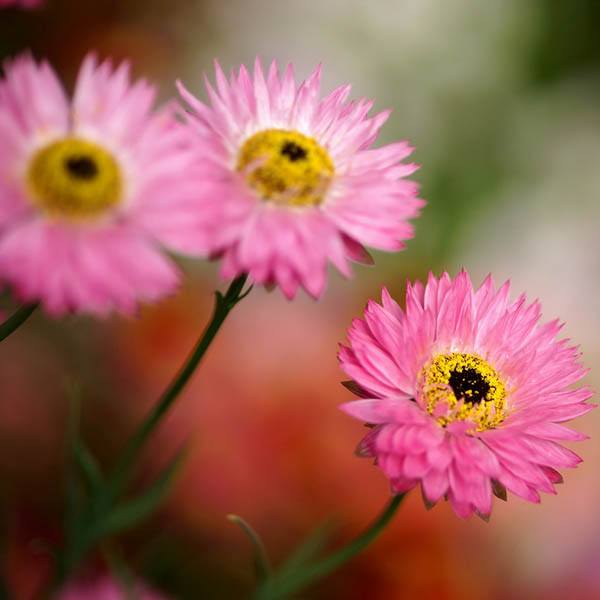
RHODANTHE chlorocephala ssp rosea Pink Everlastings & Paper Daisy Australian Seed
Rhodanthe chlorocephala subsp. rosea is an erect annual herb 20-60cm high with clumps of glabrous (hairless) grey-green stems and leaves 1-6cm in length. It has a large single flowering head at the tip of each stem. Flower heads grow to 6cm diameter, gradually decreasing as the flowering season progresses. The color of the bracts varies from.

Rhodanthe chlorocephala subsp Rosea Pink and White Everlasting — Lullfitz Nursery
RHODANTHE chlorocephala ssp rosea Pink. Pink Everlasting. Stock: Available. SKU Code: F 111. SIZE: 1 packet $4.25; 10 grams $11.99; 100 grams $72.20; 1000 grams $608.00; 25 grams $19.95; 250 grams $180.50 $ 4.25. QTY: Add to Cart. Family: Asteraceae Characteristics: Annual 20-60 cm. Seed per packet: Approx. 100 Seed per gram: Approx. 350.
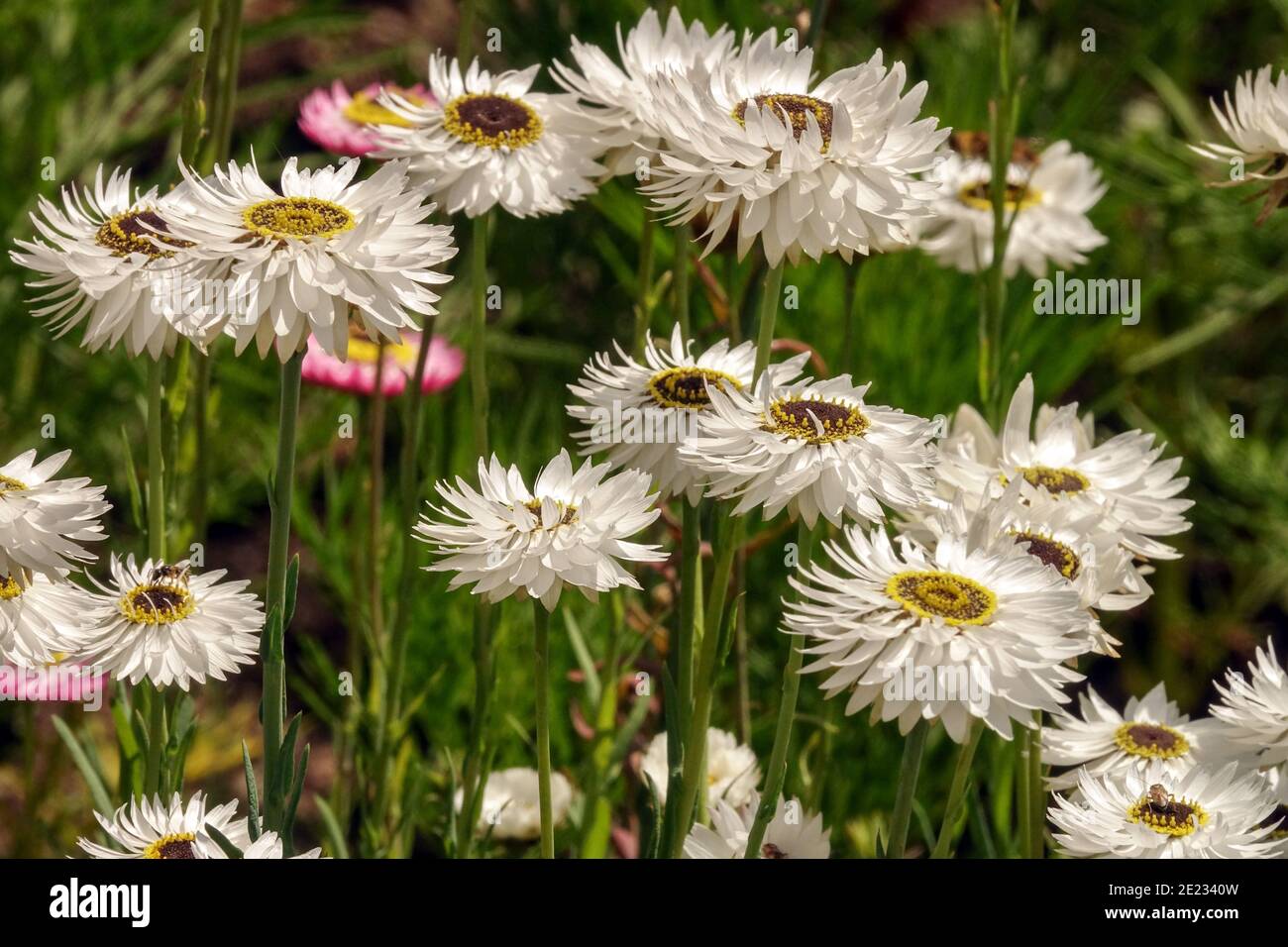
Immortelle Rhodanthe chlorocephala subsp. rosea 'Pierrot' Stock Photo Alamy
Rhodanthe chlorocephala ssp rosea Pink Everlasting Endemic. Rhodanthe chlorocephela ssp rosea can be white, pink or yellow and is found inland from Kalbarri towards the wheat belt but extending into the desert beyond. It is a favourite with gardeners as it can be more easily grown than many native species and will even seed itself from one year.
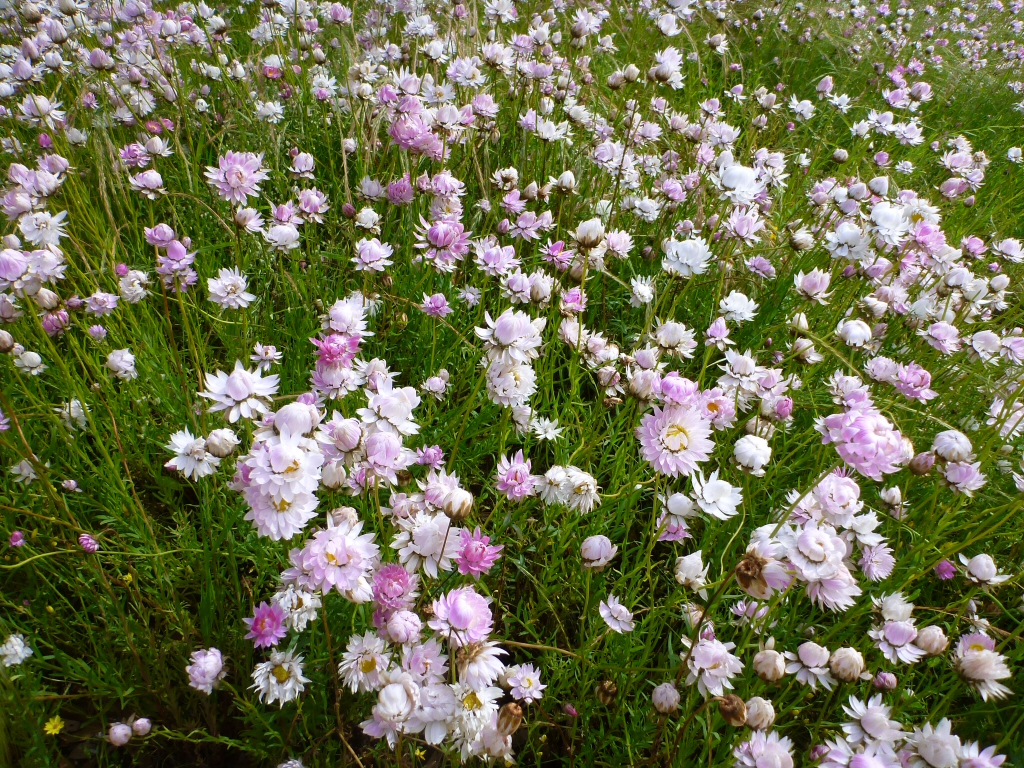
Rhodanthe chlorocephala ssp rosea Everlasting Daisy Gardening With Angus
Rhodanthe chlorocephala ssp. Rosea Endemic to Western Australia, this annual everlasting daisy is a go-to-choice for creating pretty native wildflower meadow effects in your garden. With flowers ranging from pure white to deep pink with contrasting bright yellow or deep black centres, each stem is topped with a flower appearing from August to.
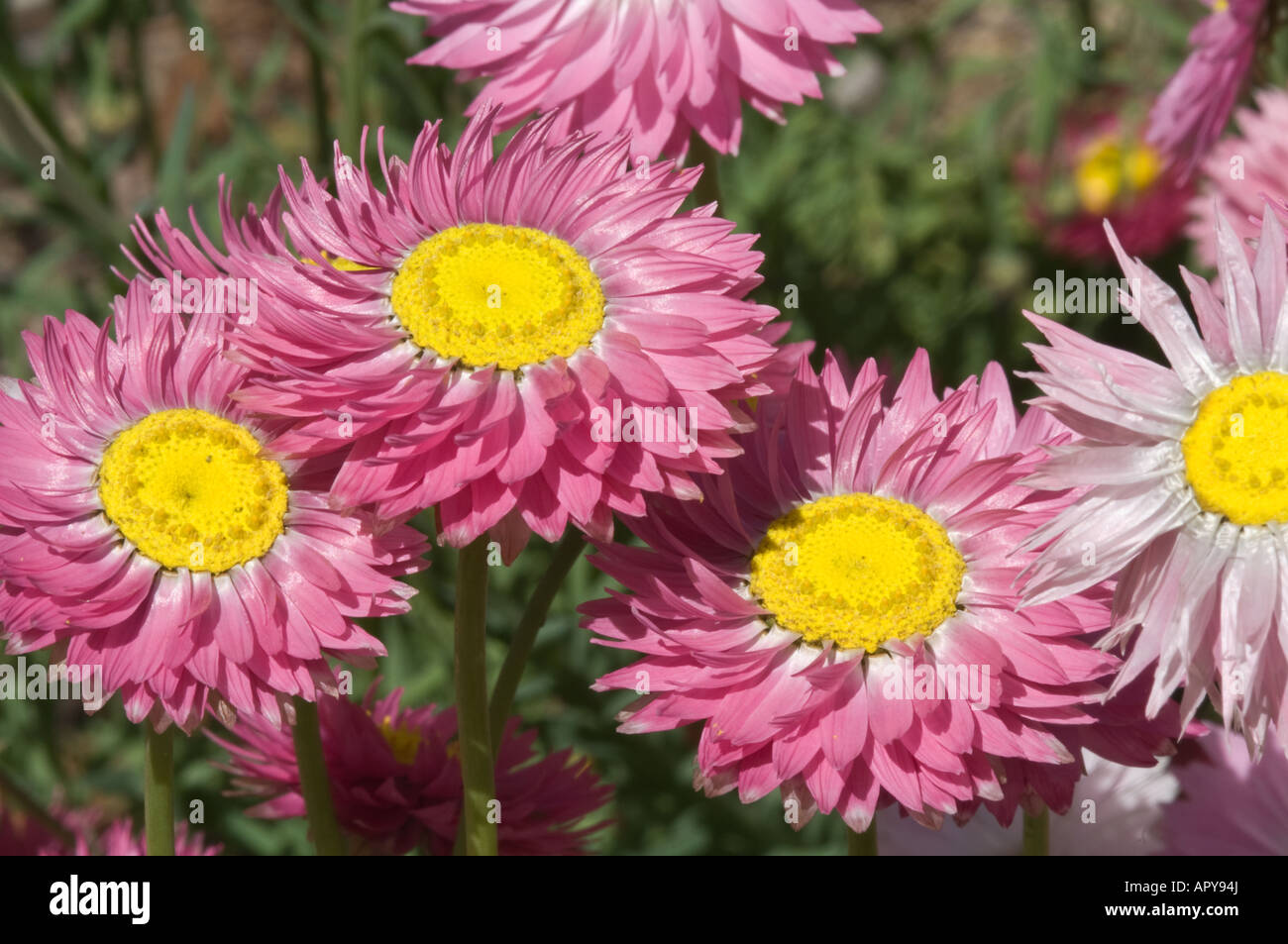
Pink and white Paper Daisies Rhodanthe chlorocephala ssp rosea Kings Park Flower Festival Perth
Rhodanthe chlorocephala ssp. rosea. Return
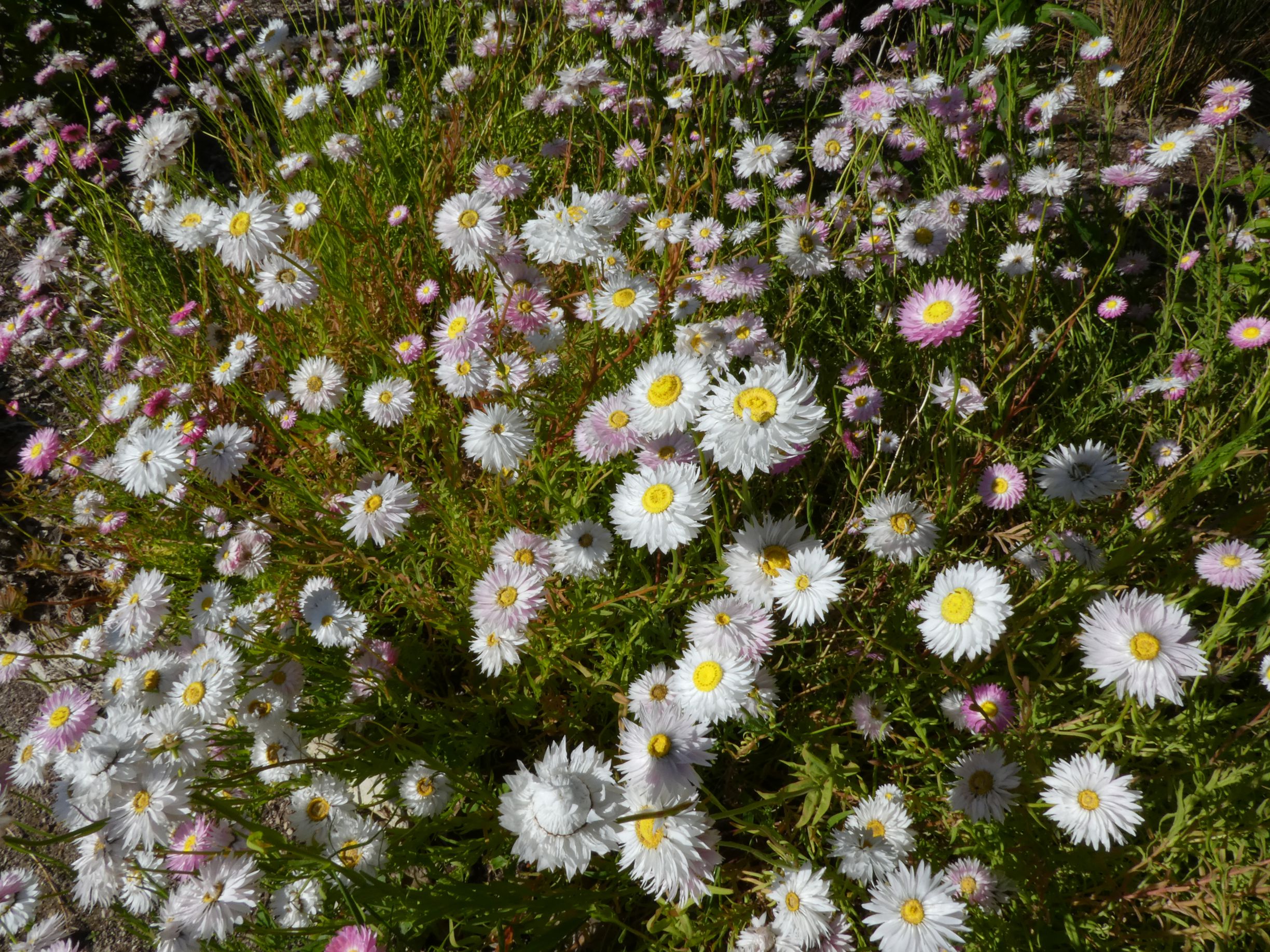
Rhodanthe chlorocephala subsp. rosea Geographe Plants
Deciduous. Habit. Columnar upright. Genus. Rhodanthe can be annuals, perennials or sub-shrubs, with simple, narrow, alternate leaves and daisy-like everlasting flowers in shades of pink, yellow and white, in summer. Name status. Accepted.
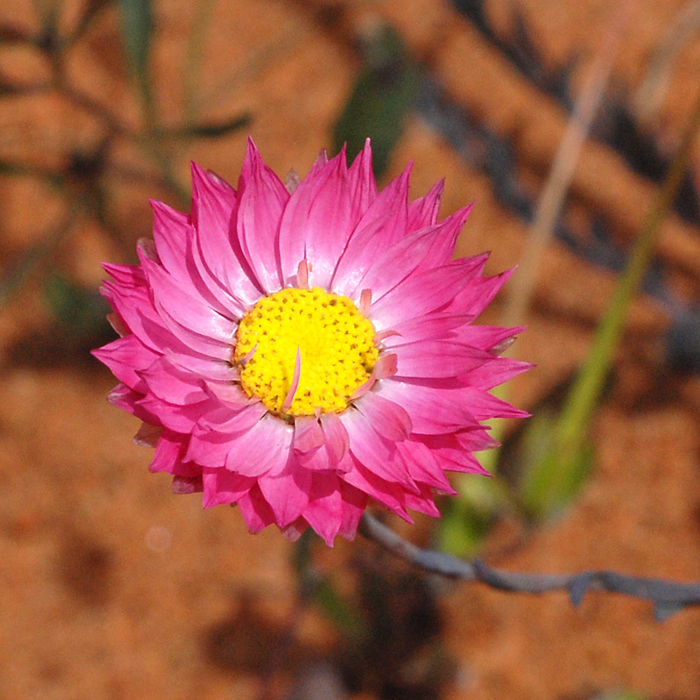
Australian Wild flower Rhodanthe chlorocephela ssp rosea Pink Everlasting
Rhodanthe chlorocephala is a small annual with terminal, single flowers about 10-60 mm (0.39-2.36 in) in diameter borne on stems about 30 cm (12 in) long, greenish or yellow florets, papery pink, yellow, cream or white bracts and buds with green outer bracts. The leaves are linear-shaped, blue-green, hairless, 1-2 cm (0.39-0.79 in) long.

Everlasting Daisy Rhodanthe chlorocephala ssp. Rosea Native Plant Project
Rhodanthe chlorocephala subsp. rosea ( pink paper daisy, rosy sunray ) belongs to the group of annual and biennial plants. Rhodanthe chlorocephala subsp.
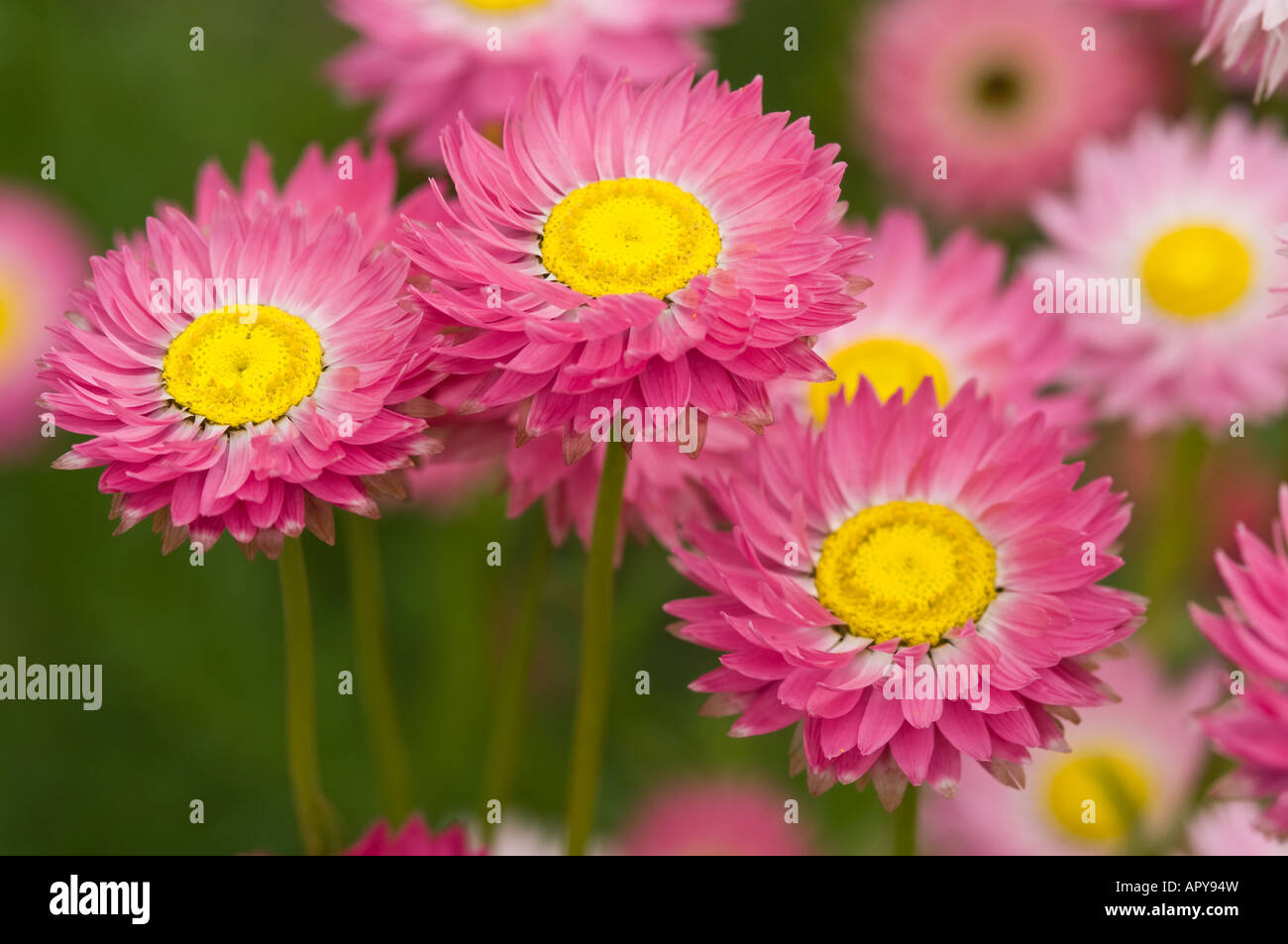
Pink and white Paper Daisies Rhodanthe chlorocephala ssp rosea Kings Park Flower Festival Perth
R. chlorocephala subsp. rosea is a vigorous, tender, erect annual with linear, stem-clasping, grey-green leaves and, in summer, daisy-like flowers with yellow flowerheads surrounded by prominent, papery, rose-pink or white bracts.. Rhodanthe chlorocephala subsp. rosea (Everlasting) Other names: Pink everlasting, Paper daisy, Pink paper daisy.
First time growing Rhodanthe chlorocephala subsp. rosea (Pink & White Everlastings, Pink Sunray
Rhodanthe chlorocephala ssp. rosea 'Memories': A broadleaf deciduous annual / biennial with green foliage and white, pink, red and yellow flowers in summer. Attractive to bees. To grow well, it prefers sun - mostly sun and regular water. Grows best in average soil.
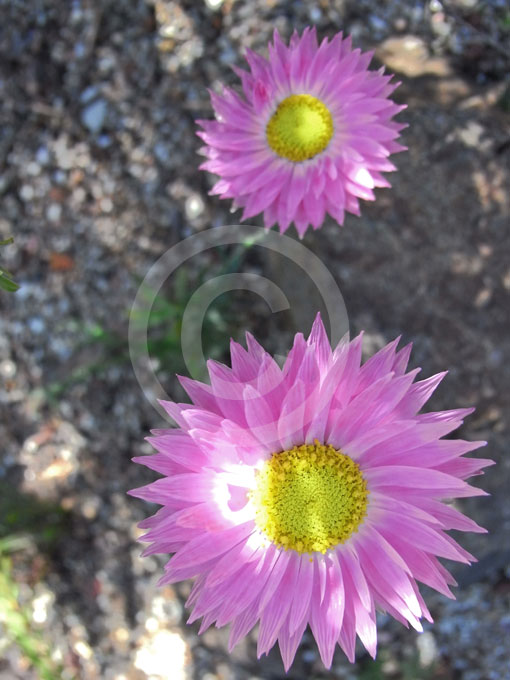
Rhodanthe chlorocephala rosea Pink Straw Flower information & photos
Scientific Name: RHODANTHE chlorocephala ssp rosea Common Name: Everlastings (Pink, Red & White) Alternative Common Name: Everlasting Daisies, Paper Daisies Family: Asteraceae Height: 30cm (12″) - 60cm (24″) Width: up to 30cm if spaced up to 30cm (12″) apart. Description: Probably the easiest and quickest to grow of all Australian wildflowers and the most famous of the Pink Everlastings.

Everlasting Daisy Rhodanthe chlorocephala ssp. Rosea Native Plant Project
Rhodanthe chlorocephala (Turcz.) Paul G. Wilson subsp. rosea (Hook.) Paul G.Wilson in the Germplasm Resources Information Network (GRIN), U.S. Department of Agriculture Agricultural Research Service. Accessed: 2014-08-05. Rhodanthe chlorocephala subsp. rosea (Hook.) Paul G. Wilson - Taxon details on Integrated Taxonomic Information System.
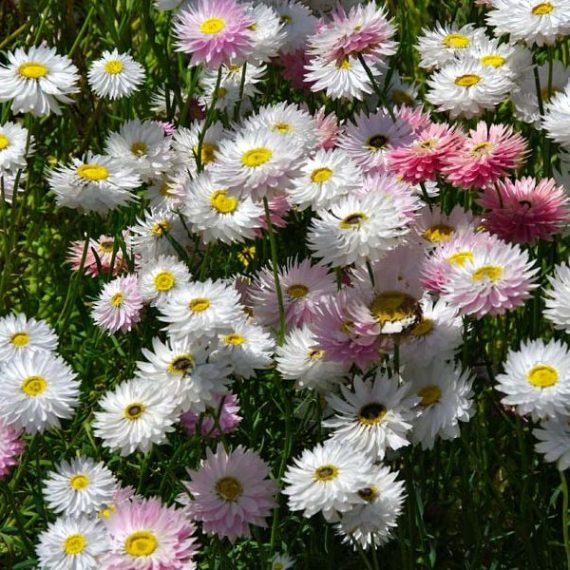
Rhodanthe chlorocephala ssp rosea Pink & White Everlastings seeds x75 Ole Lantana’s Seed Store
Something about this flower has earned it a place on seed lists and catalogs since parchment was printed in the colonies. Must be the glistening pink papery cut petals that encircle golden or chocolate centers the long stems for cutting the way they cheer up a long winter with summer remembered. Needs well-drained soil and loves heat.

Rhodanthe chlorocephala ssp rosea Everlasting Daisy Australian Native Container Plants
Rhodanthe chlorocephala ssp rosea - Everlasting Daisy. This annual everlasting daisy is superb for creating native wildflower meadow effects, and has flowers which range from pure white to deep pink, with contrasting bright yellow or deep black centres. Each stem is topped with a flower, and pinching out will encourage more stems and thus.